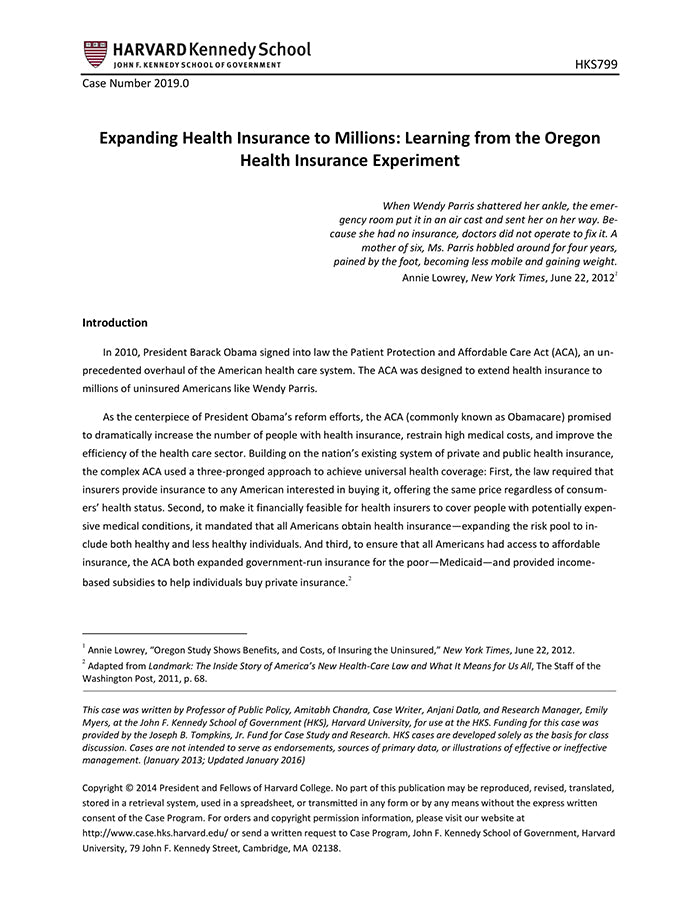Expanding Health Insurance to Millions: Learning from the Oregon Health Insurance Experiment
受取状況を読み込めませんでした
In 2008, the state of Oregon had the budget to enroll 10,000 individuals into Medicaid. But officials knew that demand for Medicaid would be far greater. To give all poor, uninsured Oregonians a fair chance at receiving health insurance, the state established a lottery. In this simple lottery, renowned economists Katherine Baicker (at Harvard) and Amy Finkelstein (at MIT) found a rare and promising natural experiment. For decades, evidence on the impacts of health insurance on health was dominated by observational studies, which offered inconclusive answers. Under the Oregon lottery, some individuals were randomly selected from a waiting list to receive insurance while others were not, enabling comparison between the two groups, and in effect creating a randomized experiment. The Oregon health experiment, as it came to be known, would finally give economists and policymakers rigorous evidence on how access to health insurance affected the provision and use of health care, and ultimately, influenced the health and well-being of the population. By 2016, as part of the Patient Protection and Affordable Care Act, an estimated 25 million Americans were set to obtain health insurance, 12 million under Medicaid alone; driving home the need to find conclusive answers to these longstanding questions. Case number 2019.0
【書誌情報】
ページ数:17ページ
サイズ:A4
商品番号:HBSP-HKS799
発行日:2014/5/22
登録日:2016/2/18


